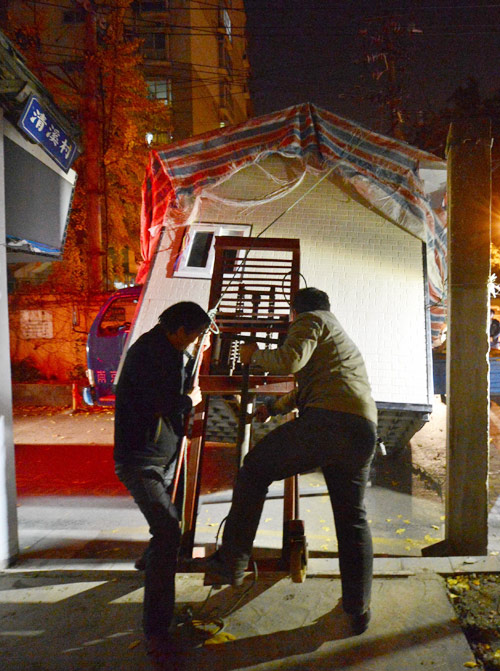Baby and Infant Care
"When we suggested the baby shelter in June, there was a lot of criticism that I was teaching people how to commit a crime.
"There have been a lot of wild accusations. Some have suggested that the number of abandonments will shoot up, others that baby traffickers will lie in wait outside the shelter and steal infants."
Tang Rongsheng, former head of Shenzhen, China's social welfare centre

Welfare personnel set up a portable room as safe haven for abandoned babies in Nanjing, on Nov 27. [Zhao Jie/for China Daily]
"Abandoning a baby is a crime. But during the process of committing this crime, babies are the victims. Since the root of the crime ... cannot be solved in the blink of an eye, it is a good option to shift our focus to protecting those victims."
Peng Xizhe, Fudan University, professor specializing in public policy and social development

Pictured: Shenzhen Welfare Center (Image: thenanfang.com)
A baby abandoned within a garbage can. Before it was rescued, its vulnerable exposure left it with organ damage. Another child abandoned in a public lavatory, and another yet left outside a hospital. It is illegal to abandon a baby in China. But it is also illegal to have more than one child. If a child is born with physical or mental handicaps, that ties the parents forever to the care of their sole offspring with very special needs; costly, time-consuming and absent the reward in pride of having produced a normal child.
That is one source of abandoned babies. Another is single women finding themselves with an unwanted pregnancy, and no practical means to raise a child on her own. Let alone the social shame that accompanies such a birth. Better to surrender it to an unknown fate. These events of foundlings and social responsibility has resulted in a growing need to make accommodations for the babies their parents spurn through perceived practical need or for any other reason.
Increasingly, cities across the country have taken to offering shelters where babies can be left anonymously and with safety to the child. Shelters that come equipped with an incubator, blankets, oxygen on standby and an alert button that the parent may press to alert staff to the presence of a new responsibility.
It is held to be transients, migrating from the country to urban centers in search of work, that are those mostly who are abandoning their own responsibilities to their unwanted babies, and leaving them as the responsibility of civil authorities. Young women far from home whom circumstances and fortune have betrayed and left with little option. And who can now furtively take steps to leave their child in capable hands.
When Mr. Tang, as head of Shenzhen's social welfare centre, first spoke of taking in abandoned children, there was a loud backlash of citizens horrified at the thought that this would end up encouraging irresponsible people to unburden themselves of vulnerable children. That the city of several million people would wind up caring for an unwieldy number of abandoned children.
Now, however, Mr. Tang's suggestion has the recommendation of Beijing. And Baby Shelters are to be built nationwide, according to an announcement by Dou Yupei, vice-minister of the civil affairs bureau in Beijing. And within the social welfare centre of Shenzhen where the municipal orphanage is located, 560 children are present, many of whom speak of Mr. Tang as "Father Tang".
The children live in dormitories. Nurseries and classrooms are well-staffed, clean and airy. Many of these children will eventually be adopted. Many more never will be. Those who are judged to be too mentally or physically handicapped for prospective adoptive parents to cope with. But they will be cared for.
Labels: Charity, Child Welfare, China, Human Relations, Social-Cultural Deviations



<< Home